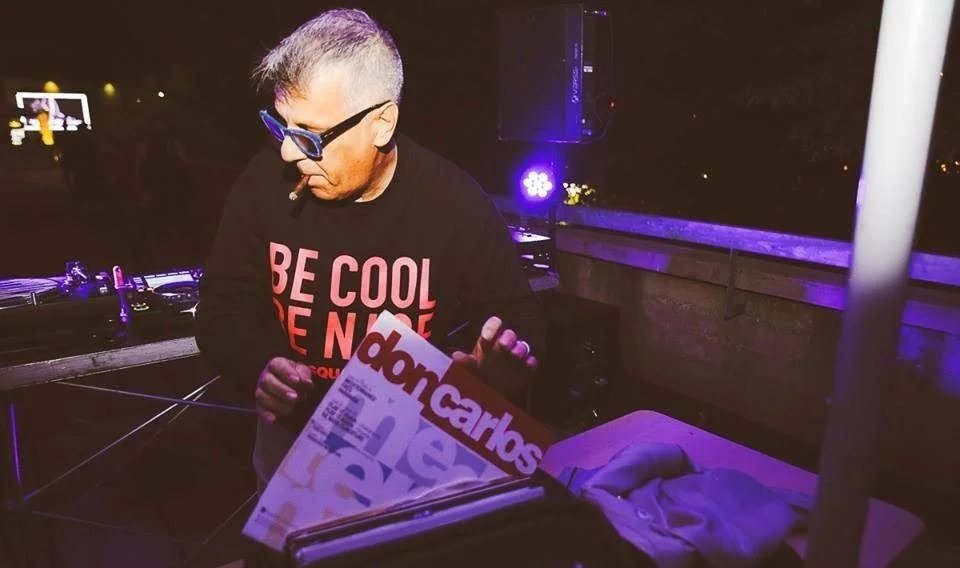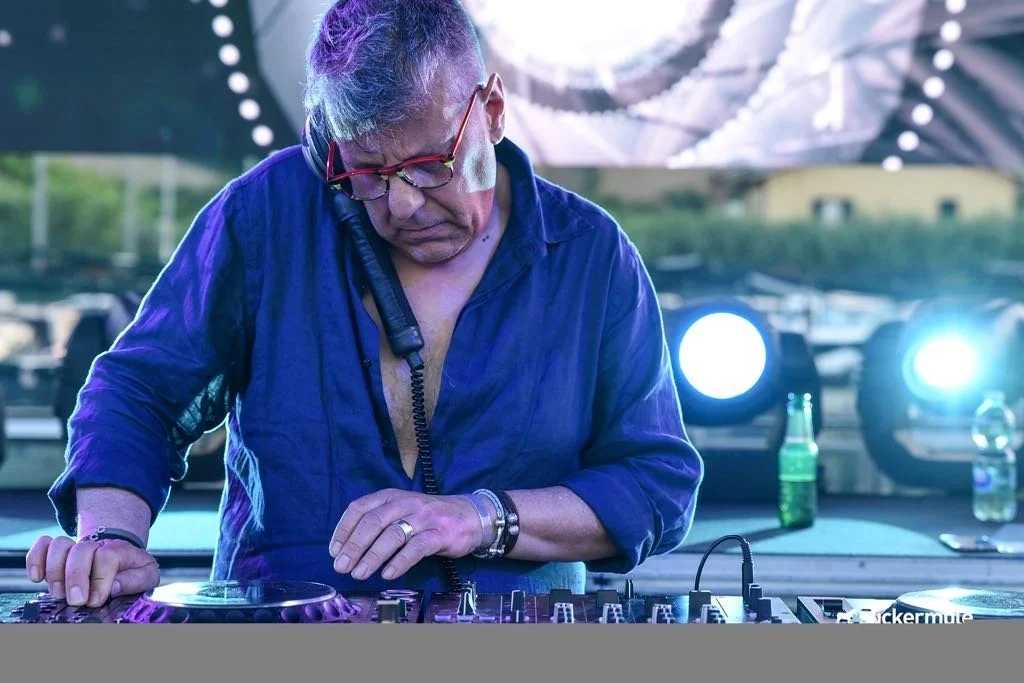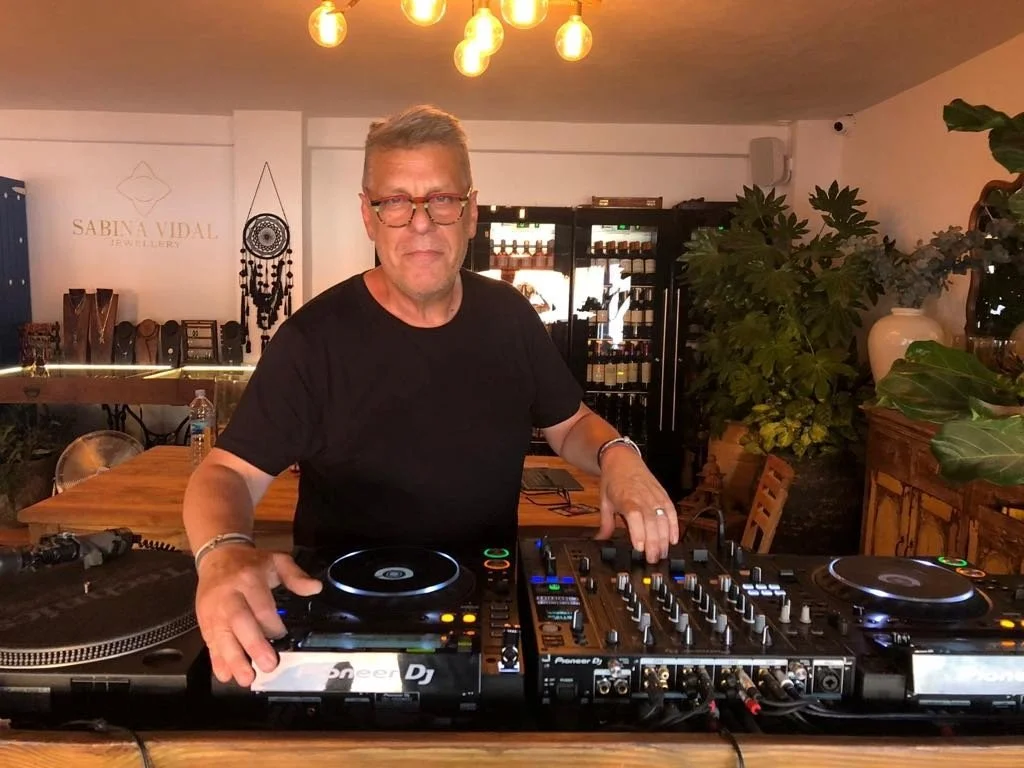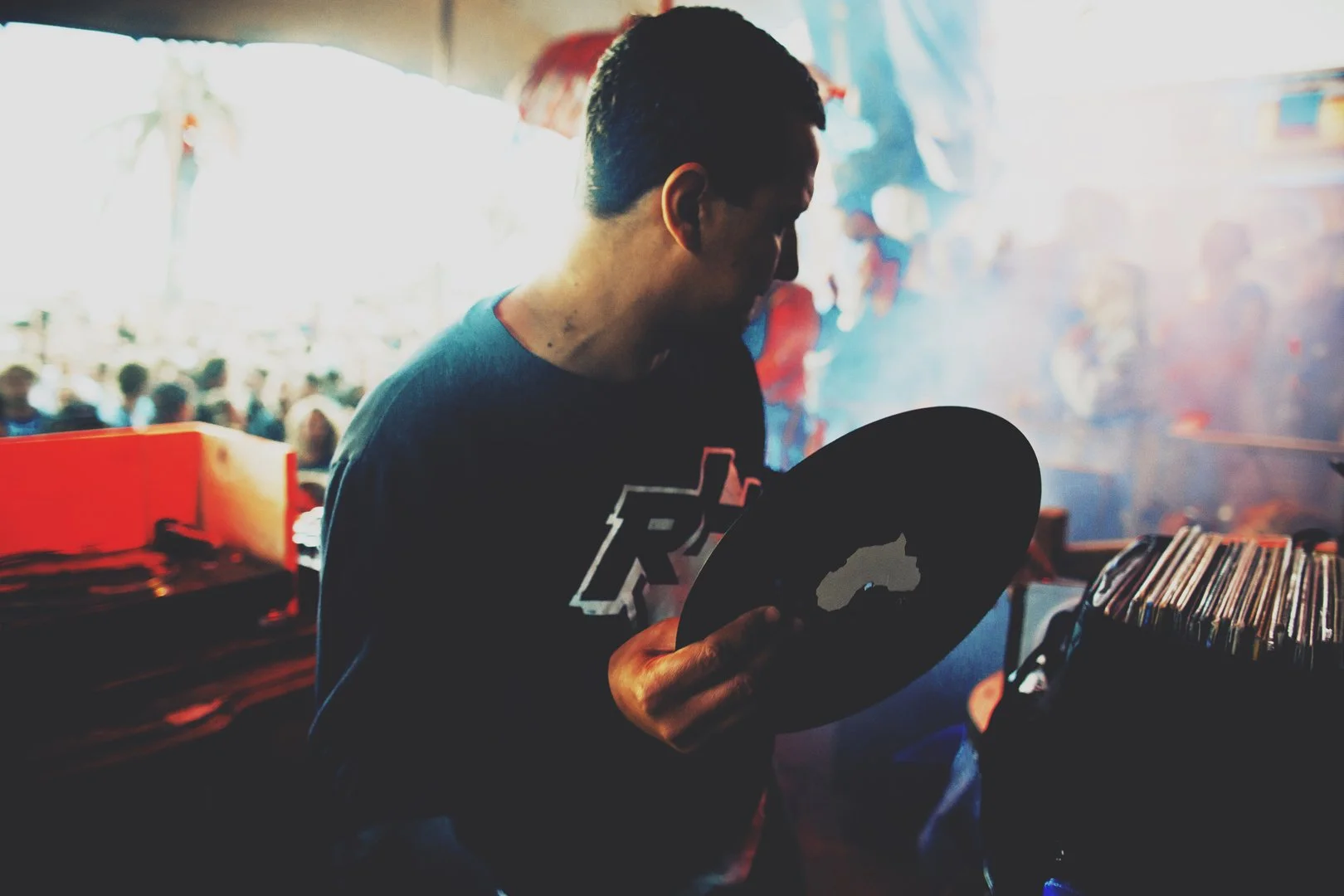Paradise Found: Don Carlos Interview
Words by Rocco Universal
“Back in those years, if you were not elegant, you remained off the premises”
Dream house pioneer Don Carlos holds an almost mythical reputation among lovers of the deeper shades of Italo house.
Born Carlo Troja in the northern Italian city of Varese – a small, art nouveau–adorned town he still calls home – his far-reaching DJ career began in the late ’70s and early ’80s, fuelled by funk, soul and Philly disco. These sounds would shape much of the Afro-cosmic, disco and proto-house emerging from the region at the time. His production debut came with a glorious bang in 1991, when the genre-defining ‘Alone’ landed on Irma offshoot Calypso Records. Though built from the familiar Italo house palette, lead track ‘Alone (Paradise)’ stood apart – floating with ethereal grace above the brash chords and hyped snares of its piano house peers. Bewitching pads, emotive chords and levitating synths glide over crisp drums and mood-driven bass – a meditative dream house archetype that endures to this day.
The track helped cement Troja’s revered status, but he went on to release a string of albums, EPs and compilations throughout the ’90s under various aliases – scoring underground hits as Montego Bay with ‘Everything’ in 1992, and as Aquanauts with ‘Karma’ in 1996. After a long hiatus between 2003 and 2012, Berlin tastemaker Hunee released an edit of Carlos’ ‘Re-Mida’, sparking his return to studio work. EPs on Greek label Echovelt and Ilija Rudman’s Imogen followed, and last year’s ‘Living In A Dream’ album saw Carlos revive a selection of lost gems, salvaged from tapes stored deep in the archives. “Making the double album ‘Living in a dream’ was a long job using a tape that was now full of dust,” says Troja. “I listened and listened again, changed my mind 100 times, and then made a decision on what to put on vinyl. I wanted to make this album to show how it was not easy to make a successful record like ‘Alone’.”
Thanks to the renewed appetite for earthy sonics and analogue production, the album carried a freshness alongside its authenticity – setting it apart from the new wave inspired by the era that birthed it. “I studied a lot in that particular historical moment the music of dream house,” says Troja. “Some tracks later came out with other versions that seemed better at the time. Then, 30 years after the first auditions, we realised that maybe there was something interesting even in the unpublished ones.” The album drew from unreleased projects, and Troja hints his archive is far from empty. “I still have tracks that are unreleased from that period, maybe later I’ll do some edits and release them, we’ll see.”
Today, the appetite for retro-leaning Italo, new beat, and proto-house remains strong, and Troja is well-positioned to reflect on the unique conditions that shaped these sounds. “That period was unique and unrepeatable, for better or worse, we all came from the disco or dance music scene of the ’70s and ’80s. What then made this music work, in my opinion, was to combine arias, melodies, velvety sounds, and synths with powerful bass, and those rhythmic pianos that overwhelmed you when the track hits. Even today, if you proposed these records, you [would] have great success with the public.” For Troja, the lasting appeal lies in the unshakably positive nature of the movement’s standout tracks. “At the end of the day, we have great music that makes you feel happy after for decades.”
It’s easy to look back on the era with rose-tinted glasses, but to imagine the whole world was tuned to the underground would be naïve. As today, most club and radio music was stubbornly commercial. “In the 90s most of the clubs were commercial, everyone played above all commercial radio hits,” says Troja. “Some DJs – like myself, the late Claudio Coccoluto, Ralf, Ricky Montanari, Massimino and some others, all very good DJs but I can’t name them all – we tried to carry on in another world from the mainstream musical point of view. Some people understood that there was room to reverse the trend and that you could also clear the sneakers, jeans and t-shirt brigade, which sadly today seems normal. But back in those years, if you were not elegant, you remained off the premises!”
When reflecting on what made the Italo sound so distinctive, Troja suggests that disco, soul, funk, jazz and R&B were only part of the picture. He points instead to Italy’s layered history and cultural richness as key ingredients. “Italy has been a place of conquest for many people,” he says. “We have experienced many influences. We owe everything to those who made it possible to be what we are today – to those who gave their lives for this Italy. We have had and have now many great composers who draw on classical music. It is in our blood. When I am alone, I never get bored because melodies are created in my head.
“There are artists like Lucio Battisti, Ennio Morricone, Pino Daniele, who have influenced us and still today it is within us.” These elements help define the distinctive music that evolves from the Peninsula, and when combined with a natural drive to innovate, they explain the enduring allure of the Italo sound. “Some want to copy others in music, but they do not last long,” says Troja. “Creativity is the basis of everything. Now, this musical trend seems a destiny, we need to create to experiment and also to take risks in music.”
With his studio endeavours still in full flow, Don Carlos returned to release action recently – lending his touch to Manuel Darquart’s ‘Keep It DXY’, out via the ever-reliable UK deep house label Wolf Music Recordings. His remix bears all the hallmarks of Emilia-Romagna’s golden clubbing era: bubbling synths, purposeful chords, lively percussion and his trademark rubbery bass, evoking the bleary-eyed haze of a long, hot Mediterranean night.
The music builds to a life-affirming peak and feels every bit as vital as the most timeless cuts of its canon. Though you might assume Manuel Darquart is a solo project, it’s actually the UK–New Zealand duo Louis Anderson-Rich and Sean Whittaker. Naturally, they were thrilled to share vinyl space with the Italo legend. “For us, it’s all in the name,” say the pair via email. “Don Carlos is the don! A holy grail of underground dance music who can create such a strong sense of place and history when you hear a track like ‘Alone’ or the ‘Mediterrano’ EP. Those two records literally put us on our current path, so to have him say our project was ‘very hot’ kinda broke our brains. Then we heard the remix and it broke them further. It is a dream come true to see our name in the same breath as Don Carlos.”
There’s still little background information on Don Carlos in the usual sources, and speaking with him only adds to the mystique. His words carry a musical poetry that amplifies his legendary aura. As an artist, he’s stayed true to his instincts – sidestepping trends and ignoring passing fashions. When discussing his quasi-mystical career, he’s humble and quietly profound. “Success has a limited duration and ends,” he says. “You have to reconfirm yourself, but if you create something unique, you have achieved a purpose in life. That music will remain unique and unrepeatable.”








